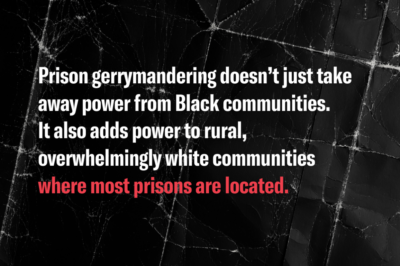ACLU of the Dakotas Challenges Districting Scheme That Prevents Native Americans From Holding Office
FOR IMMEDIATE RELEASE
BUFFALO COUNTY, SD – In a blatant violation of the “one person, one vote” principle, the county commission here has for years maintained district lines that intentionally dilute the voting strength of Native American voters by more than 20 times what the Constitution allows, the American Civil Liberties Union today charged in a federal lawsuit.
“Native Americans are the overwhelming majority in Buffalo County, but the existing district lines ensure that the county’s white minority controls the County Commission,” said Bryan Sells, a staff attorney with the ACLU’s Voting Rights Project and lead counsel in the case. “This is the most glaring example of political apartheid that I have seen anywhere in the United States.”
The ACLU lawsuit, filed on behalf of three Native American voters living on the Crow Creek Indian Reservation, seeks a court order that dissolves the existing district lines, creates new, nondiscriminatory districts, and calls for a special election.
According to the ACLU’s complaint, the “one person, one vote” principle of the Fourteenth Amendment to the United States Constitution requires state and local governments to draw equally populated voting districts every 10 years after the decennial census.
Deviations from population equality are measured in percentage terms, and according to federal law, total deviations above 10 percent violate the Constitution. The total deviation of the existing districts in Buffalo County is greater than 218 percent, or 20 times what is allowed. The Buffalo County Commission reviewed their districts last year but decided against making any changes.
County Commissions around the state have legislative and quasi-executive powers, the ACLU said, including responsibility for the budget and hiring and firing of county executives that are not elected.
Located in central South Dakota, rural Buffalo County is governed by a three-member County Commission. The voters in each single-member district elect one member to the County Commission. The existing districts put 78 percent of the county’s 2,032 residents-virtually all of them Native American-into a single district. The other two districts contain 5 percent and 17 percent of the population, respectively. One of these is an all-white district and the other contains so few Native Americans that white voters effectively control the outcome of elections.
“It is incomprehensible that the County Commission met just last year to review the existing district lines and determined that all was well and no changes were needed,” said Jennifer Ring, Executive Director of the ACLU of the Dakotas. “The question then becomes, has this been an intentional effort to keep Native Americans off the County Commission?”
The lawsuit, Crystal Kirkie, et al. v. Buffalo County, et al., was filed in federal district court on behalf of three members of the Crow Creek Sioux Tribe whose reservation is encompassed by Buffalo County. According to the 2000 Census, Buffalo County is the poorest county in the nation.
To read the complaint filed in this case please go to: /node/35081
Stay Informed
Every month, you'll receive regular roundups of the most important civil rights and civil liberties developments. Remember: a well-informed citizenry is the best defense against tyranny.



